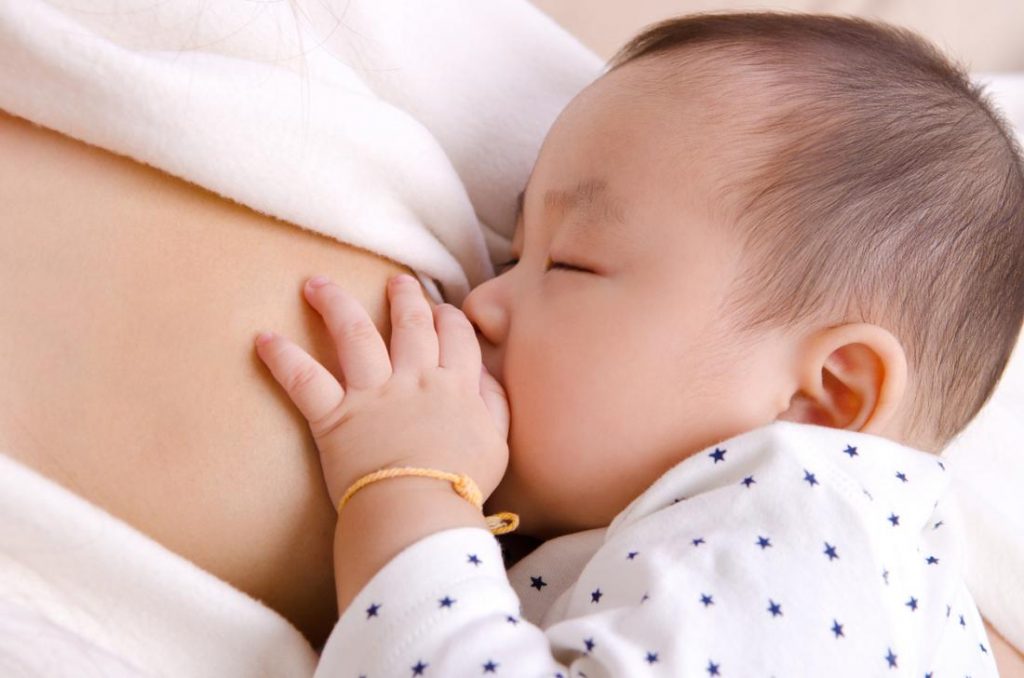“Stay away from sick people and make everyone wash their hands before holding your baby. Don’t let strangers touch your baby. Don’t take your newborn outside or let young children visit for at least a month. Breastfeed your baby for at least a year.“
Do any of these pieces of parenting advice sound familiar to you? Given that they are some of the most common methods believed to help keep babies from getting sick, chances are good that you began hearing them as soon as you entered into parenthood if not months before. It’s safe to say that parenthood would be a lot easier if there was some way we could keep all babies from getting sick—at least during the first few months of life. Unfortunately, there’s no foolproof method to insure your baby won’t get sick or develop a fever; yet it’s entirely possible for you to significantly lessen her chances.
In this article, we’ll take a look not only at the role our immune systems play in keeping us well, but ways in which you can actually give your baby’s immune system a boost until it is better equipped to fight infection on its own.
Our Built-In Defense Systems
Your immune system is a complex system capable of amazing things. Overall, its basic task is to protect you by recognizing anything that gets into your body, determining if it is foreign, figuring out if it is friend or foe, and responding accordingly. When your body is faced with defending itself from intruders such as bacteria or viruses, for example, many types of cells within your body spring into action. Some respond by producing infection-fighting proteins called antibodies. Others, such as white blood cells, are able to attack bacteria directly and destroy them. Through methods such as these, your body’s immune system is often able to prevent you from getting sick, and helps you get well again if you do become sick.
Newborn Defenses
We know that a newborn’s immune system is not nearly as effective as an adult’s or even an older child’s, and that it takes many months before a newborn can fight off infection as well as someone whose immune system is fully matured. Nonetheless, you may be pleasantly reassured to know that newborns are much better protected against (or immune to) potential illnesses and diseases than you might otherwise think. This is because during pregnancy, disease-fighting antibodies made in the mother’s immune system are able to make their way across the placenta and into her baby’s body. Fortunately, these antibodies stick around for several months and are able to give newborns an added level of protection from many routine illnesses during this important time when they are not as able to effectively make their own antibodies. However, all good things must come to an end, and infants gradually get less and less benefit from their mothers’ antibodies—that is, unless they are breastfed.
The Value of Breast Milk
Breast milk not only has unquestionable nutritional value, but it provides infants with an added level of immune protection that no commercial formula has been able to duplicate. That’s because even colostrum—the first milk produced by new mothers—contains large numbers of antibodies and other infection-fighting cells. Through breast milk, nursing mothers are able to provide their babies with a continued source of antibodies long after they deliver. As a result, breastfed babies are protected against many if not all of the diseases to which their mothers’ are immune. It is because of this significant boost in immunity that breastfed babies have been shown to get sick less often, suffer from fewer ear infections, and experience less severe symptoms when they do get sick. And while you may be familiar with the risk of uneven heating and scald burns associated with microwaving breast milk, it’s worth noting that doing so is also thought to destroy the immune properties of the milk.
The Fear of Fever
Having a baby with a stuffy nose can be very challenging, since it more often than not means that he’ll eat and sleep poorly and be fussy, but there are even more important reasons to avoid exposing your baby to even the common cold. Keeping very young infants from catching colds and getting fevers is more than a matter of convenience. Because of their immature immune systems, young infants are less able to fight infections than older children and adults. While babies have the same likelihood as we do of having a routine and relatively harmless viral infection, their potential for getting a serious and potentially overwhelming bacterial infection is much greater. While fevers often go along with the former, they also serve as warning signs for the latter. This is why fevers are taken much more seriously in the first few months of life, and why they almost always necessitate a trip to the doctor’s office at best, and quite often, the real possibility of blood and urine tests, a spinal tap, or even a hospital admission and IV antibiotics.
Using Caution and Common Sense
Understanding what you now know about an infant’s immune system and the benefits that a mother’s antibodies confer, you might wonder why it is that we still use such caution around even breastfed newborns. After all, we know that they are relatively well-protected by their mother’s antibodies for weeks after birth, even when they’re not breastfed, and for the months or years after that if they are. The reason is most likely one of common sense.
While we know that young infants aren’t entirely defenseless, there are many effective and practical ways for you to keep your baby healthy in addition to breastfeeding. As mentioned at the start of this article, they involve simple measures such as good hand washing, avoiding people who are most likely to be sick (which not only includes those who have fevers, snotty noses or hacking coughs, but also children—a group who is known to spend a great deal of time contagious with one form of common cold or another). Anything you can reasonably do that helps to limit the demands placed on your baby’s immune system in the early months will help keep her healthy and you both happy.
Source:











